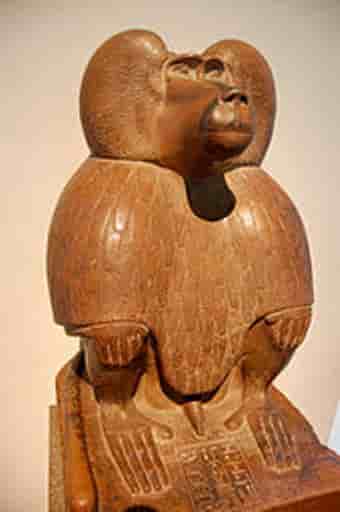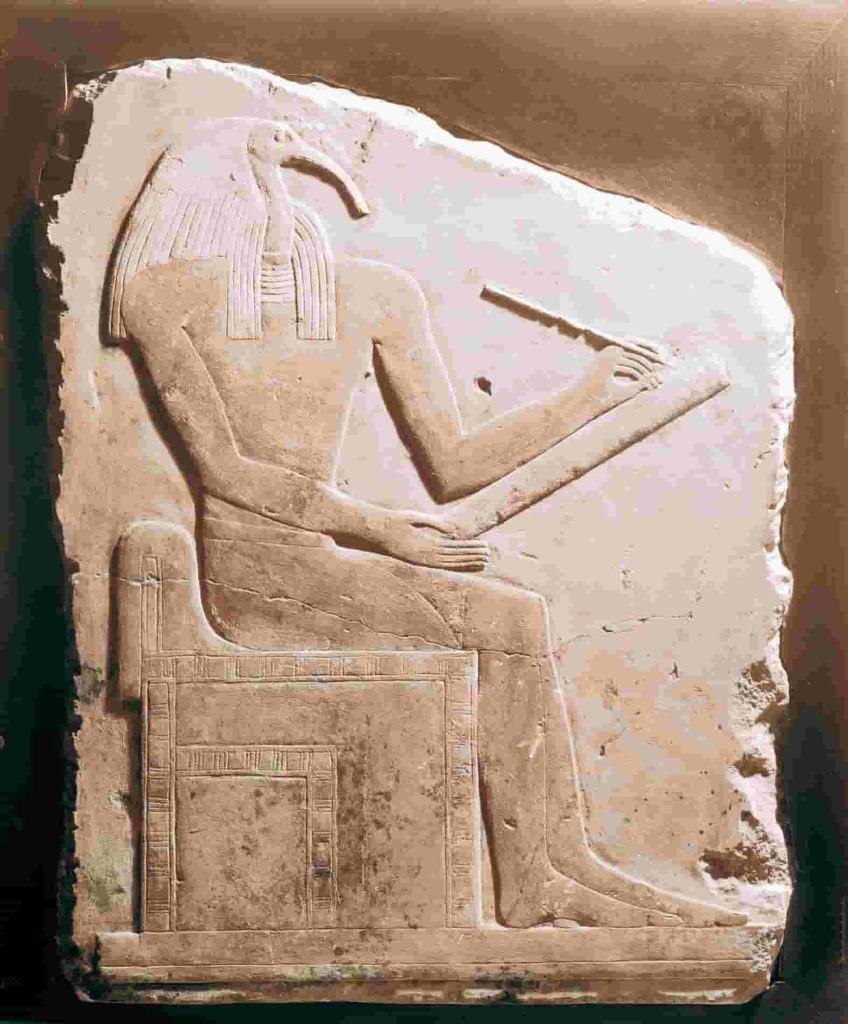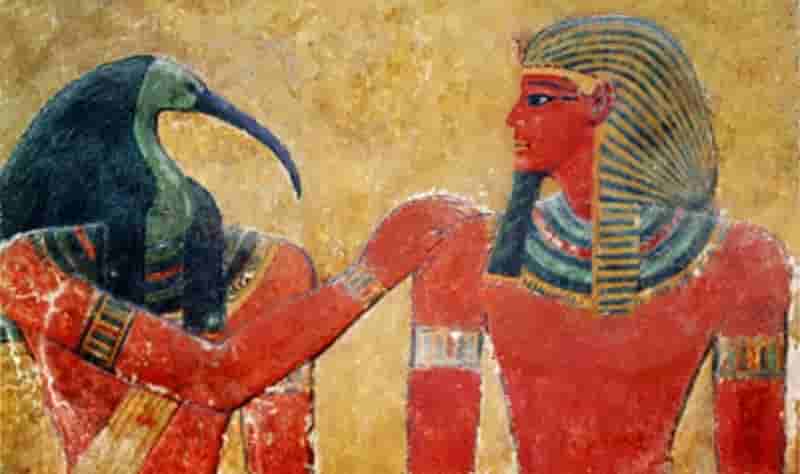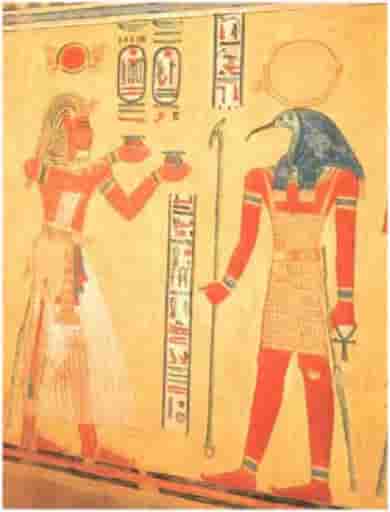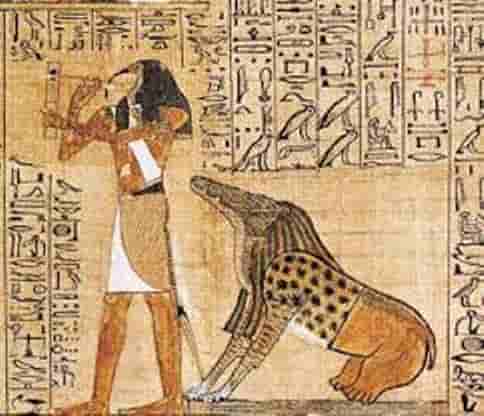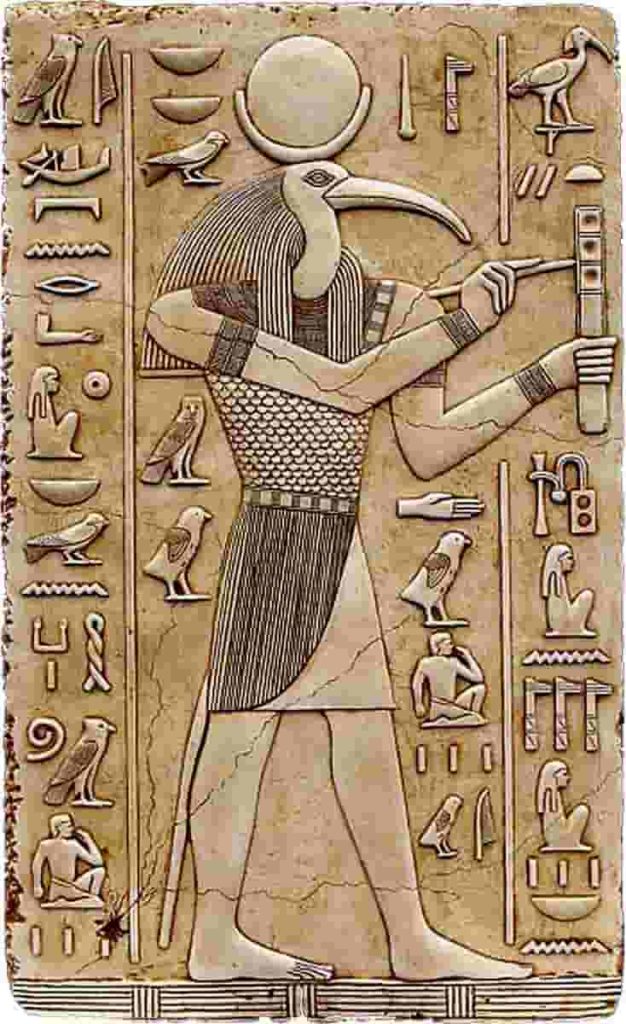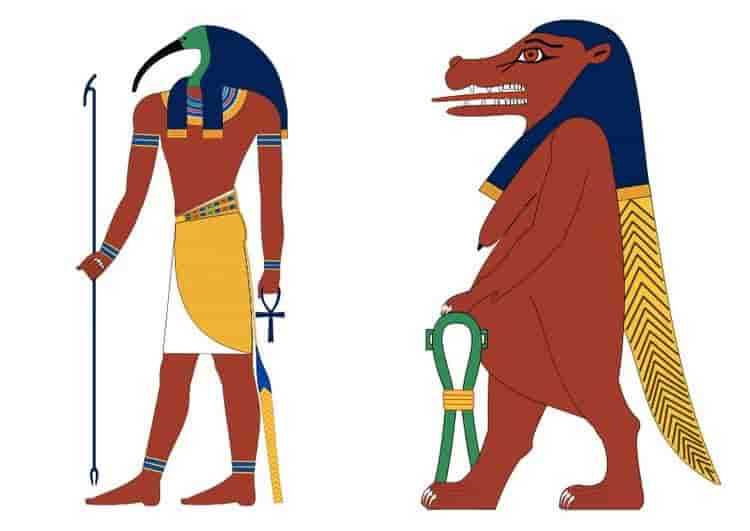Meaning of God Thoth
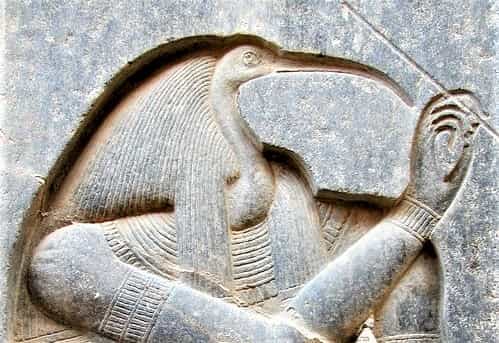
The function of the scribes in Ancient Egypt was so important that they had their own god: Thoth. He was the inventor and protector of writing and wisdom that all other gods came to ask for help and good advice.
Thoth’s Egyptian name was Djehuty (also dhwty) which means “He who is like the Ibis.” The ibis was a sacred bird in ancient Egypt, as well as a popular pet and associated with wisdom.
Who is the god Thoth?
The scribes had Thoth as their god and that allowed them to be in an excellent social position, very close to the pharaohs. But Thoth was also the god of music, medicine, geometry, astronomy, magic and the moon’s symbol.
He was also a messenger of the gods and assured the fulfillment of their wills. The main city of his cult was named Hermopolis.
Thoth was also the god of balance and was closely associated with both the principle of ma’ at (divine equilibrium) and the goddess ma’ at that personified this principle (and who was sometimes seen as his wife).
There the “House of Life” ruled and it was said that Thoth had codified the ceremonies that transform the dead into spirits so that only their priests would know them.
As with most myths, versions of his birth abound. Some say he was Ra’s son , and in others he was born from Set’s head, just as the Greek goddess Athena was born from Zeus’s head; not forgetting that she was also goddess of wisdom.
Thoth is a god so old that he participated in the creation myths and the birth of Osiris, when Nut asked for Thoth’s help in order to have children.
During the clashes between Set and Horus for the dominance of ancient Egypt, Thoth allied with Isis and Horus to defend them, and when the goddess Tefnut moved away to the Nubian Desert, taking with her the moisture, Thoth was convinced to return and for this he took the form of a baboon.
Since then he is represented with this animal, or with the head of an ibis, a pen and the celestial scribe board to write down the thoughts, words and acts of men and weigh them on their scales.
As secretary of the gods, Thoth possessed and mastered the word effective; He wrote the laws, the accounts, the stories and the Book of Life.
As lord of the calendar and scribe of the gods, he wrote down the years of each pharaoh and was also present at the trial of the dead, questioning the deceased to know if he was worthy of life after death.
The pen of Thoth, his main attribute, was weighed next to the heart of the deceased, if it weighed more than the pen, the deceased could not pass into the world of Osiris; if it weighed the same, yes, and nothing could weigh less than Thoth’s pen.
Book of Thoth
“The book of Thoth” was in its beginnings the most sacred book of the ancient Egyptians, whose origin is believed to have been made of gold leafs and dictated by the god Thoth who was in charge of the measurement of time and to predict the future.
To this is added the invention of numbers and hieroglyph, as this apparently had earned all the respect of the people and the pharaohs. For this reason they considered him as the god capable of managing life and especially the destiny of all.
